Find Help
More Items From Ergsy search
-

What is a tracker mortgage and how does it respond to interest rate changes?
Relevance: 100%
-

How do interest rate changes affect my mortgage payments?
Relevance: 73%
-
What is an SVR and how does it relate to interest rate changes?
Relevance: 68%
-

Will my fixed-rate mortgage payments change with interest rate fluctuations?
Relevance: 67%
-

Major Banks Announce Changes in Interest Rates: Are You Affected?
Relevance: 62%
-

Are first-time buyers affected differently by interest rate changes?
Relevance: 58%
-
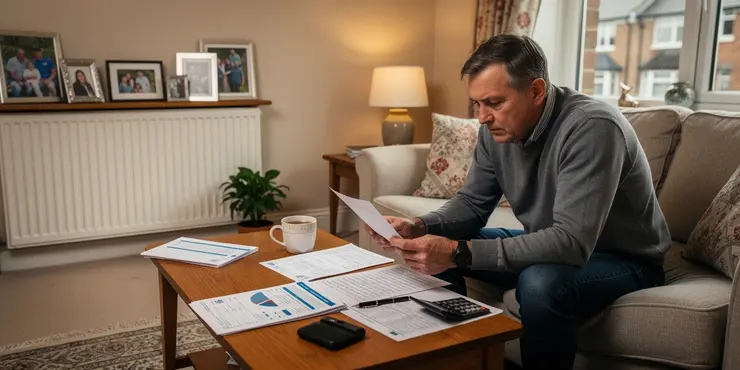
Is it possible to switch my mortgage type if interest rates become unfavourable?
Relevance: 57%
-

What happens to my monthly payments if interest rates rise?
Relevance: 54%
-

Can my lender change my interest rate without notification?
Relevance: 53%
-
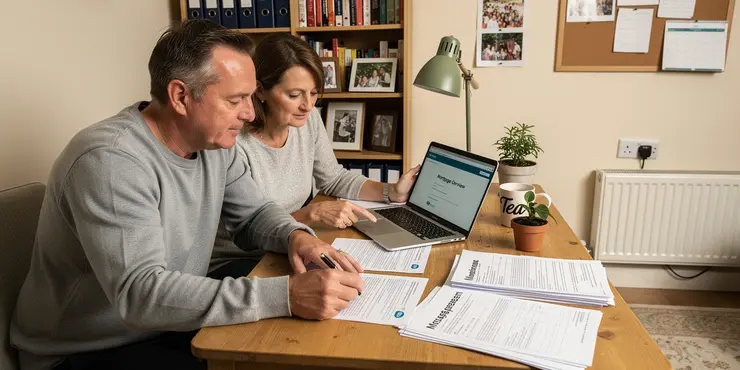
What is an 'interest only' mortgage?
Relevance: 52%
-

What should I do if I can't afford my mortgage payments due to rising interest rates?
Relevance: 51%
-
What does it mean to "Fix My Mortgage Rate"?
Relevance: 49%
-

How do economic conditions influence interest rate changes?
Relevance: 46%
-

How can I protect myself from rising interest rates?
Relevance: 46%
-

Why do interest rates rise and fall?
Relevance: 42%
-

The Ultimate Buy-To-Let Mortgage Breakdown
Relevance: 40%
-

Three Debt Free Methods in 2023 | Free Debt Calculator Tracker
Relevance: 39%
-

Can interest rates on student loans be reduced?
Relevance: 39%
-

Bluetooth Tracker with Personal Alarm
Relevance: 39%
-

How much can I borrow for a mortgage UK - getting the Maximum Mortgage
Relevance: 39%
-

How do better interest rates help me save money?
Relevance: 37%
-

Getting the maximum mortgage in the UK
Relevance: 37%
-

If I overpay on my mortgage, how will interest rate changes affect this?
Relevance: 36%
-

Mortgage Regulator removes the need for further affordability stress tests
Relevance: 36%
-

5 Broker Exclusive Buy to Let Mortgage Lenders you need to know about as a Landlord
Relevance: 35%
-

How does interest rate affect my car finance agreement?
Relevance: 35%
-

How do better interest rates help me save money?
Relevance: 34%
-
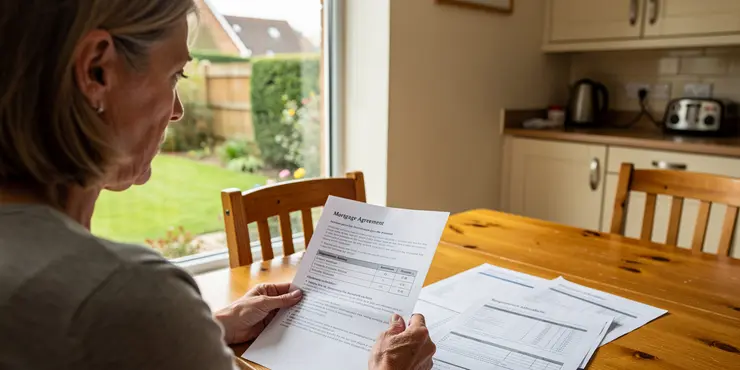
How do interest rate changes affect my mortgage balance?
Relevance: 34%
-

First Time Buyer Buy to Let Finance Options. Lending Criteria on Mortgage and Bridging Finance
Relevance: 33%
-

Mortgage Turned Down In The UK - Why mortgage applications are declined
Relevance: 33%
-
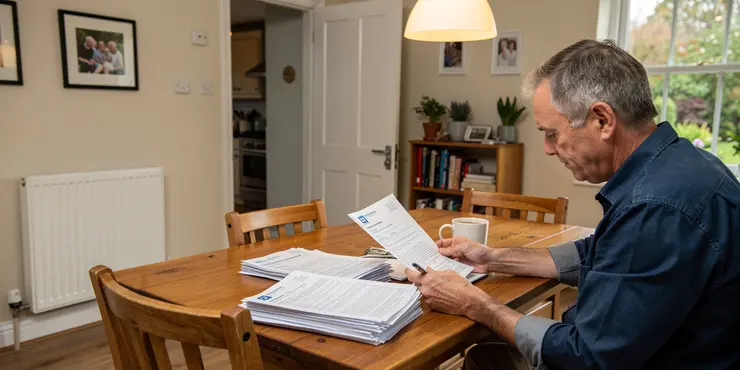
Mortgage Overpayment and Flexible Features Explained
Relevance: 33%
-

HMO Mortgage Truths - how to get the best Finance option including Bridging Loan Criteria
Relevance: 33%
-

Highest Income Multiple Mortgage Lenders Revealed - Good and Bad Points
Relevance: 32%
-

First Time Buyer Buy to Let Finance Options. Lending Criteria on Mortgage and Bridging Finance
Relevance: 32%
-

Uk Buy to Let for Older Clients - Mortgage Options Tips and Criteria
Relevance: 31%
-

Can Stamp Duty be included in a mortgage in the UK?
Relevance: 31%
-

How often do interest rates change?
Relevance: 30%
-
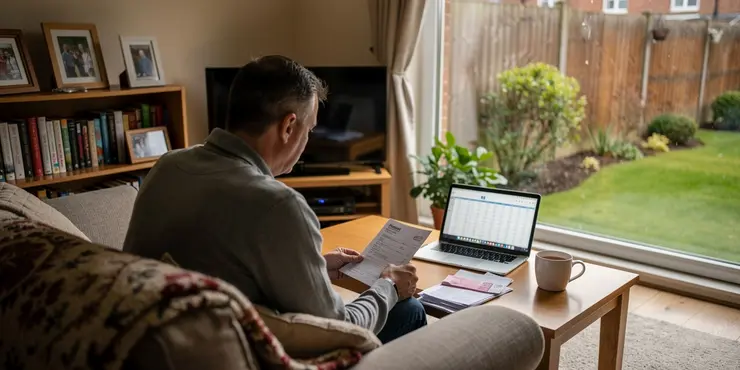
Should you Pay down your Residential Mortgage?
Relevance: 30%
-

UK Mortgage Rules Lenders Don't Talk About - Debt To Income Ratio
Relevance: 30%
-

Is there a change in National Insurance rates for 2026?
Relevance: 30%
What is a Tracker Mortgage?
A tracker mortgage is a type of variable-rate mortgage commonly offered in the United Kingdom. Its key feature is that it tracks the movements of a specified benchmark interest rate, most often the Bank of England base rate, with a fixed margin added by the lender. This means that the interest rate on a tracker mortgage fluctuates in line with changes in the base rate, offering a potentially lower rate when borrowing costs are reduced and, conversely, higher costs when rates rise.
How Does a Tracker Mortgage Work?
When you take out a tracker mortgage, you agree to pay an interest rate that is typically expressed as the base rate plus a certain percentage. For example, if the Bank of England's base rate is 1% and the tracker mortgage is set at base rate plus 1.5%, your interest rate would be 2.5%. It's important to understand that while this type of mortgage offers the possibility of lower payments when benchmark rates are low, your payments will also increase should the base rate rise.
Responding to Interest Rate Changes
Tracker mortgages are directly linked to the Bank of England's base rate, which is subject to change depending on the economic conditions. When the base rate changes, tracker mortgage rates follow suit almost immediately. If the base rate drops, borrowers with tracker mortgages will see a decrease in their monthly payments. This can be beneficial in periods of economic downturn when rates are often reduced to stimulate economic activity.
Conversely, during periods of economic growth or when inflation is a concern, the Bank of England may increase the base rate. In these situations, borrowers with tracker mortgages will experience an increase in their monthly payments, sometimes significantly, depending on the size of the rate hike. This potential for fluctuation means that tracker mortgages can be attractive for those who are financially able to handle variability in their monthly housing costs.
Considerations for Borrowers
When opting for a tracker mortgage, borrowers should consider their capacity to manage changes in monthly repayments. Savvy financial planning and budgeting are advised, especially in anticipation of potential rate increases. Additionally, it's crucial to read the terms of the mortgage carefully. Some trackers may have a "collar" or minimum interest rate below which the rate will not fall, and almost all have an "upper limit" to protect the lender.
Despite the inherent risks, tracker mortgages can be advantageous, especially when market predictions suggest stable or falling interest rates. They offer the potential for lower costs compared to fixed-rate mortgages, at least when rates are favorable. However, for those averse to uncertainty, a fixed-rate mortgage might be preferable, even with potentially higher initial costs.
What is a Tracker Mortgage?
A tracker mortgage is a type of loan for buying a house. In the UK, its interest rate goes up and down with a special rate set by the Bank of England. The interest can get lower or higher, so the amount you pay each month can change. If the Bank's rate goes down, your payment might go down. If the Bank's rate goes up, your payment might go up.
How Does a Tracker Mortgage Work?
With a tracker mortgage, you pay interest on top of the Bank of England's rate. For example, if the Bank's rate is 1% and your mortgage adds 1.5%, your rate is 2.5%. This means if the Bank's rate changes, so can your payments. It's good to watch the Bank's rate because it affects how much you pay.
Responding to Interest Rate Changes
If the Bank of England changes its rate, your tracker mortgage rate changes too. When the rate goes down, you'll pay less each month. This can help if money is tight. But if the rate goes up, you'll pay more each month. Try to save some money for these times.
When the economy is doing well, the Bank might increase the rate to control spending. This means your payments could go up, and it's important to be ready for that.
Considerations for Borrowers
Before choosing a tracker mortgage, check if you can handle changes in your payments. Planning a budget can help you feel prepared. Read the mortgage details carefully. Some mortgages won't let your rate go below a certain number, even if the Bank's rate drops. Also, there might be a maximum limit to protect the bank.
Tracker mortgages can be good if you think rates will stay low or drop. They can cost less than mortgages with fixed rates, which stay the same all the time. But if you don't like this uncertainty, a fixed-rate mortgage might be better, even if it costs more at first.
Frequently Asked Questions
What is a tracker mortgage?
A tracker mortgage is a type of variable rate mortgage that follows the movements of a specific interest rate, typically the Bank of England Base Rate, plus a fixed percentage.
How does a tracker mortgage differ from a fixed-rate mortgage?
A tracker mortgage's interest rate fluctuates in line with the base rate, while a fixed-rate mortgage has an interest rate that remains constant for a set period.
Can the interest rate on a tracker mortgage go down?
Yes, if the base rate that the tracker mortgage follows decreases, the interest rate on the mortgage will also decrease.
What happens to a tracker mortgage if interest rates rise?
If the base rate rises, the interest rate on a tracker mortgage will increase, leading to higher monthly payments.
Are there any caps on how high the interest rate can go on a tracker mortgage?
Most tracker mortgages do not have a cap and will continue to track the base rate regardless of how high it goes.
What are the advantages of a tracker mortgage?
Advantages include potentially lower initial rates compared to fixed-rate mortgages and benefiting from any reductions in the base rate.
What are the disadvantages of a tracker mortgage?
Disadvantages include the risk of rising payments if interest rates increase and the uncertainty of changing monthly costs.
How often can the interest rate change on a tracker mortgage?
The interest rate can change whenever the base rate changes, which could be multiple times a year.
Are tracker mortgages available for first-time buyers?
Yes, tracker mortgages are available to first-time buyers, but it's important they assess the risks of fluctuating rates.
Can I switch from a tracker mortgage to a fixed-rate mortgage?
Yes, you can remortgage to a fixed-rate deal, but you should check if there are any exit fees or early repayment charges on your current tracker mortgage.
Do tracker mortgages have introductory offers?
Some tracker mortgages may offer a discounted rate for an introductory period before moving to a higher tracker rate.
Why do lenders offer tracker mortgages?
Lenders offer tracker mortgages as they reflect the cost of borrowing over the base rate, offering flexibility in pricing.
Can a tracker mortgage have a fixed term?
Yes, a tracker mortgage can have a fixed term after which it might revert to a standard variable rate, if not remortgaged.
Is a tracker mortgage suitable for everyone?
A tracker mortgage is not suitable for everyone, particularly those who need consistent payments and can't handle increases in monthly costs.
How does a tracker mortgage affect monthly budgeting?
Monthly payments can fluctuate with interest rate changes, making it potentially challenging for strict budgeting unless rates are stable.
What base rate does a tracker mortgage typically follow?
Tracker mortgages typically follow the Bank of England Base Rate or, in other countries, the relevant central bank's rate.
Are there any penalties for paying off a tracker mortgage early?
Some tracker mortgages may have early repayment charges, so it's essential to check the specific terms before paying it off early.
Can tracker mortgage rates be negotiated?
While the rate itself follows the base rate and can't be negotiated, the additional percentage above the base rate might be negotiated with some lenders.
Do tracker mortgages offer payment holidays?
Some lenders may offer payment holidays, but this varies between providers and typically depends on the borrower's history and circumstances.
Will my lender inform me when there is a change in the base rate?
Yes, lenders usually notify borrowers of any changes in the base rate that affect their tracker mortgage.
What is a tracker mortgage?
A tracker mortgage is a type of home loan. The interest you pay goes up and down. It changes with something called the 'base rate' set by the bank.
If the base rate goes up, your payments might go up. If the base rate goes down, your payments might go down.
Helpful tip: Use a calculator to see how changes in the base rate affect your payments.
A tracker mortgage is a type of home loan. The interest you pay can change. It goes up or down depending on the Bank of England Base Rate. This rate is like a guide for the loan. You also add a little extra amount to this rate.
What is the difference between a tracker mortgage and a fixed-rate mortgage?
A tracker mortgage is a loan where the interest rate can go up or down. It follows another rate, like the Bank's rate.
A fixed-rate mortgage is a loan where the interest rate stays the same. It does not change for a set time.
If you want help with this, you can:
- Use simple apps or tools that explain words.
- Ask someone to read it with you.
A tracker mortgage has an interest rate that goes up and down with the base rate. A fixed-rate mortgage has an interest rate that stays the same for a certain time.
Can the interest rate on a tracker mortgage go down?
A tracker mortgage is a kind of loan to buy a house. The interest rate is the extra money you pay back on the loan. This rate can go up or down. It follows something called the 'base rate'.
If the base rate goes down, the interest rate on your tracker mortgage can go down too. This means you might pay less money. If you want help understanding mortgages, you can use tools like a calculator or ask a friend or family member.
Yes, if the main rate that the tracker mortgage follows goes down, the interest rate on the mortgage will also go down.
What happens to a tracker mortgage if interest rates go up?
A tracker mortgage is a type of home loan. This loan follows the interest rate set by the bank. If the interest rate goes up, the tracker mortgage rate also goes up.
Here’s what happens:
- Your monthly payment might get bigger. This means you have to pay more money each month.
- It is important to plan for these changes. You can save some extra money just in case.
- You might want to talk to a money expert to get advice.
Tools that can help:
- Use a calculator to see how much your payment could change.
- Set reminders to check interest rates regularly.
If the base rate goes up, the interest on a tracker mortgage will also go up, which means you will pay more money each month.
Is there a limit to how much the interest rate can increase on a tracker mortgage?
A tracker mortgage is a type of loan for buying a house. The interest rate can go up or down.
Here are some questions to think about:
- Is there a maximum for how high the interest rate can go?
- Ask your bank or lender for details about your mortgage.
- Read your mortgage papers carefully.
You can also use a calculator to help understand your payments. Ask a family member or friend for help if needed.
Most tracker mortgages do not have a limit. They keep following the base rate, even if it goes up high.
What are the good things about a tracker mortgage?
A tracker mortgage is a type of loan to buy a house.
Here are some good things about it:
- Follows the Bank Rate: The interest you pay goes up and down with the Bank Rate. If the Bank Rate is low, you pay less.
- Clear Costs: You can see how your payments change because they follow the Bank Rate.
- No Surprises: The interest you're charged doesn’t change suddenly unless the Bank Rate changes.
Here’s how to learn and decide:
- Use a Calculator: Find online mortgage calculators to see how payments change.
- Ask an Expert: Talk to a money advisor if you need help understanding.
- Read Simple Guides: Look for easy-to-read guides about tracker mortgages online.
Here are some good things:
1. You might pay less money at the start than with other loans.
2. If the main interest rate goes down, you pay less too.
Tools to help: - Use simple calculators online to see how much you might pay. - Ask someone you trust to explain tricky parts.
What is not good about a tracker mortgage?
Bad things about this are:
- You might have to pay more money if interest rates go up.
- Your monthly costs can change, which can be confusing.
It can help to use a budget to keep track of money. Also, talking to someone who knows about money can be a good idea.
How often can the interest rate change on a tracker mortgage?
A tracker mortgage is a loan for buying a home. It means the interest rate, which is the extra money you pay, can change.
The interest rate on a tracker mortgage can change many times. It follows the base rate set by the Bank of England. When the base rate goes up, the interest rate on your tracker mortgage can go up too. When the base rate goes down, the interest rate can go down.
To find out how often it changes, ask your bank or lender. They can tell you more about your tracker mortgage.
If this is hard to understand, you can:
- Ask someone you trust to explain it to you.
- Use apps that read text out loud to help you understand better.
- Use pictures or drawings to see how it works.
The interest rate might go up or down. This happens when the base rate changes. The base rate can change many times in one year.
Can people buying their first home get tracker mortgages?
Yes, first-time buyers can get tracker mortgages. But it's important to know that the interest rates can go up and down, so they should think about the risks.
Can I change from a tracker mortgage to a fixed-rate mortgage?
Yes, you might be able to change. Here’s what you can do:
- Contact your bank or lender. Ask them if you can change your mortgage.
- Ask about any costs. Sometimes, there might be fees to change.
- Get help from a money expert if you are unsure. They can give advice.
Remember to read everything carefully. If you find it hard, ask someone you trust to help you understand.
Yes, you can change to a fixed-rate mortgage. But first, check if your current tracker mortgage has any exit fees or early repayment charges.
Do tracker mortgages have special starting deals?
A tracker mortgage is a kind of loan for buying a house.
Sometimes, these loans start with a special deal. This might mean lower payments for a short time.
Check with banks to see if they offer these special deals.
Always ask questions if something is not clear.
If you need help, you can use pictures or videos to understand better.
Some tracker mortgages start with a lower rate for a short time. After that, the rate goes up.
Why do banks give tracker loans?
Banks give tracker loans because they follow the Bank of England's interest rates. This means if the interest rate goes up, your payments go up too. If it goes down, your payments go down.
Tracker loans help banks make sure they don’t lose money.
Support tool: Use a calculator to see how changes in interest rates can change your loan payments.
Banks and lenders have something called tracker mortgages. These are special loans for buying houses. The amount you have to pay can change. It is linked to a number called the base rate. This means the amount you pay can go up and down. It's flexible!
To help understand this, you can use tools like simple calculators to see how payments might change. You can also ask someone at the bank to explain it in a way that makes sense to you.
Can a tracker loan have a set time?
A loan is money you borrow. A tracker loan is a type of loan.
Sometimes a loan has a set time. This means you pay it back in a certain number of years.
A tracker loan can have a set time too.
Need Help?
- Ask a friend or family for help.
- Use a dictionary to understand hard words.
- Ask an expert for advice on loans.
Yes, a tracker mortgage can last for a set time. After this time, it might change to a standard variable rate, unless you get a new mortgage.
Tools or tips to help you:
- Ask a friend or family member to explain tricky words.
- Use a dictionary to find word meanings.
- Use text-to-speech apps to read the text aloud to you.
Is a tracker mortgage good for everyone?
A tracker mortgage is a loan for buying a home.
It means your payments can change.
Sometimes you pay more. Sometimes you pay less.
It follows something called the 'Bank of England base rate'.
It is not for everyone.
Some people like it because payments can go down.
Others do not like it because payments can go up.
It is good to talk to a money expert.
They can help you decide what's best.
Support tools: Use a calculator to see how changes in rates affect payments.
A tracker mortgage might not be good for everyone. It is not good for people who need their payments to stay the same every month. It is also not good for people who can't pay more money if costs go up.
What is a tracker mortgage and how does it change your monthly budget?
A tracker mortgage is a type of loan to buy a house. The amount you pay each month can change. This is because it "tracks" or follows another interest rate, like the Bank of England rate.
When the rate goes up, you pay more money. When the rate goes down, you pay less money. This means your budget can change. It is important to keep some extra money, just in case your payments get bigger.
Here are some tips to help with a tracker mortgage:
- Make a budget: Write down how much money you get and spend each month. This will help you see if you need extra money when payments change.
- Save some money: Keep some money saved. This way, you can use it if your payments get bigger.
- Check rates: Look at the news or talk to your bank. They can tell you if the rate will go up or down soon.
Monthly payments can change if interest rates go up or down. This can be hard if you have a tight budget and need the rates to stay the same.
What rate does a tracker mortgage usually go with?
A tracker mortgage follows another rate called a 'base rate'.
This base rate is often set by the Bank of England.
Tips to help understand:
- Use a dictionary to look up any words you do not understand.
- Ask someone to help explain new words or ideas.
- Look for videos or pictures that explain how tracker mortgages work.
Tracker mortgages change with the Bank of England's base rate. In other countries, they change with the local bank's rate.
Do I have to pay extra money if I finish paying my tracker mortgage early?
Some tracker mortgages might make you pay a fee if you try to pay them off early. So, it's important to look at the rules of your mortgage first.
Can you change tracker mortgage rates?
A "tracker mortgage" is when the interest you pay can go up and down. But, you can't usually change the rate like you can with some other types of loans.
If you want to lower your tracker mortgage rate, here are some ideas:
- Talk to your bank: Ask them if they can help you with better rates.
- Look at other options: Sometimes switching to a new deal can save money.
- Get advice: A money expert can give you tips to make good choices.
The first part of the rate is called the base rate. This part cannot change. But, the extra percentage on top of the base rate might be something you can talk about with some lenders and try to lower it.
Can you take a break from paying a tracker mortgage?
If it is hard to keep up with payments, ask your bank if you can take a payment break. Some banks might let you. Use a calculator to see how this could change your payments later. Always ask for help if you need it.
Some places that lend money might let you take a break from paying. Not everyone will do this. It depends on who is lending you the money and how you have paid them before.
Will my lender tell me if the base rate changes?
Yes, lenders tell people with tracker mortgages if the base rate changes.
Useful Links
This website offers general information and is not a substitute for professional advice.
Always seek guidance from qualified professionals.
If you have any medical concerns or need urgent help, contact a healthcare professional or emergency services immediately.
Some of this content was generated with AI assistance. We’ve done our best to keep it accurate, helpful, and human-friendly.
- Ergsy carfully checks the information in the videos we provide here.
- Videos shown by Youtube after a video has completed, have NOT been reviewed by ERGSY.
- To view, click the arrow in centre of video.
- Most of the videos you find here will have subtitles and/or closed captions available.
- You may need to turn these on, and choose your preferred language.
- Go to the video you'd like to watch.
- If closed captions (CC) are available, settings will be visible on the bottom right of the video player.
- To turn on Captions, click settings .
- To turn off Captions, click settings again.
More Items From Ergsy search
-

What is a tracker mortgage and how does it respond to interest rate changes?
Relevance: 100%
-

How do interest rate changes affect my mortgage payments?
Relevance: 73%
-
What is an SVR and how does it relate to interest rate changes?
Relevance: 68%
-

Will my fixed-rate mortgage payments change with interest rate fluctuations?
Relevance: 67%
-

Major Banks Announce Changes in Interest Rates: Are You Affected?
Relevance: 62%
-

Are first-time buyers affected differently by interest rate changes?
Relevance: 58%
-

Is it possible to switch my mortgage type if interest rates become unfavourable?
Relevance: 57%
-

What happens to my monthly payments if interest rates rise?
Relevance: 54%
-

Can my lender change my interest rate without notification?
Relevance: 53%
-

What is an 'interest only' mortgage?
Relevance: 52%
-

What should I do if I can't afford my mortgage payments due to rising interest rates?
Relevance: 51%
-
What does it mean to "Fix My Mortgage Rate"?
Relevance: 49%
-

How do economic conditions influence interest rate changes?
Relevance: 46%
-

How can I protect myself from rising interest rates?
Relevance: 46%
-

Why do interest rates rise and fall?
Relevance: 42%
-

The Ultimate Buy-To-Let Mortgage Breakdown
Relevance: 40%
-

Three Debt Free Methods in 2023 | Free Debt Calculator Tracker
Relevance: 39%
-

Can interest rates on student loans be reduced?
Relevance: 39%
-

Bluetooth Tracker with Personal Alarm
Relevance: 39%
-

How much can I borrow for a mortgage UK - getting the Maximum Mortgage
Relevance: 39%
-

How do better interest rates help me save money?
Relevance: 37%
-

Getting the maximum mortgage in the UK
Relevance: 37%
-

If I overpay on my mortgage, how will interest rate changes affect this?
Relevance: 36%
-

Mortgage Regulator removes the need for further affordability stress tests
Relevance: 36%
-

5 Broker Exclusive Buy to Let Mortgage Lenders you need to know about as a Landlord
Relevance: 35%
-

How does interest rate affect my car finance agreement?
Relevance: 35%
-

How do better interest rates help me save money?
Relevance: 34%
-

How do interest rate changes affect my mortgage balance?
Relevance: 34%
-

First Time Buyer Buy to Let Finance Options. Lending Criteria on Mortgage and Bridging Finance
Relevance: 33%
-

Mortgage Turned Down In The UK - Why mortgage applications are declined
Relevance: 33%
-

Mortgage Overpayment and Flexible Features Explained
Relevance: 33%
-

HMO Mortgage Truths - how to get the best Finance option including Bridging Loan Criteria
Relevance: 33%
-

Highest Income Multiple Mortgage Lenders Revealed - Good and Bad Points
Relevance: 32%
-

First Time Buyer Buy to Let Finance Options. Lending Criteria on Mortgage and Bridging Finance
Relevance: 32%
-

Uk Buy to Let for Older Clients - Mortgage Options Tips and Criteria
Relevance: 31%
-

Can Stamp Duty be included in a mortgage in the UK?
Relevance: 31%
-

How often do interest rates change?
Relevance: 30%
-

Should you Pay down your Residential Mortgage?
Relevance: 30%
-

UK Mortgage Rules Lenders Don't Talk About - Debt To Income Ratio
Relevance: 30%
-

Is there a change in National Insurance rates for 2026?
Relevance: 30%


